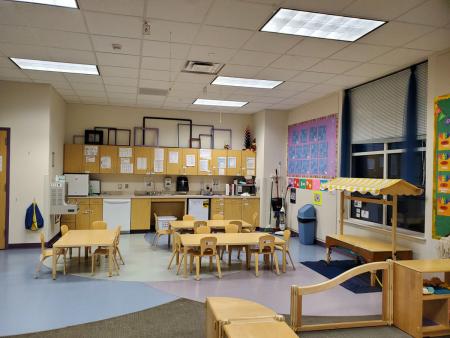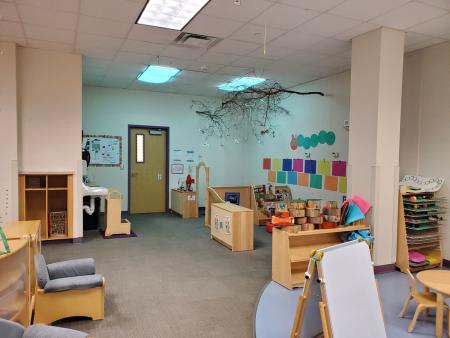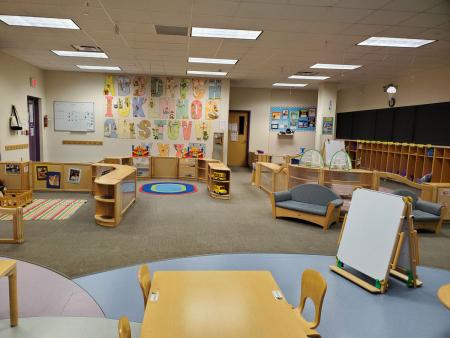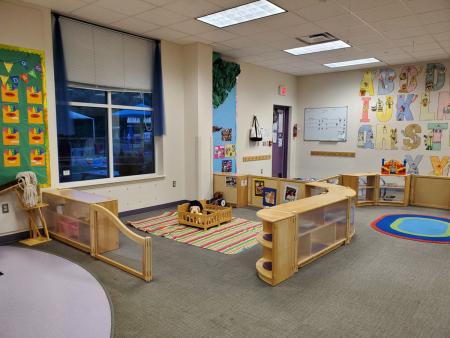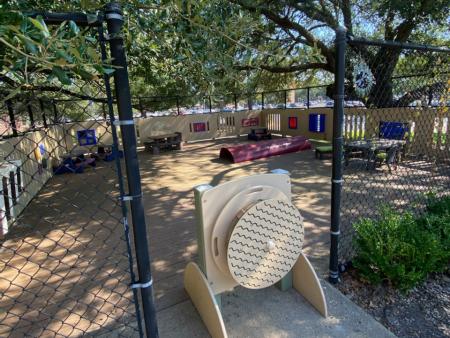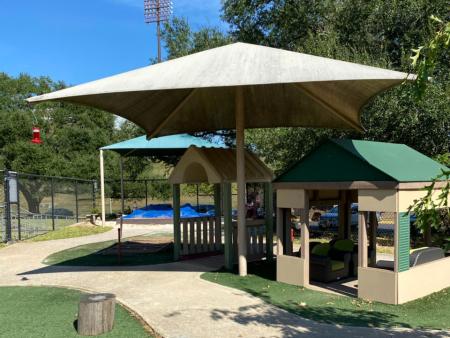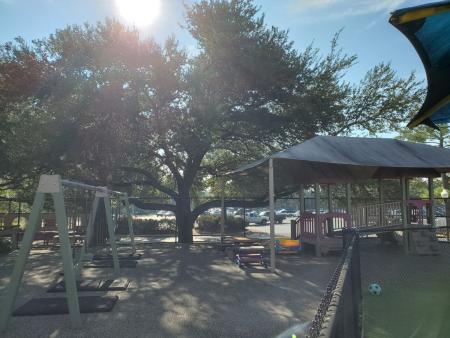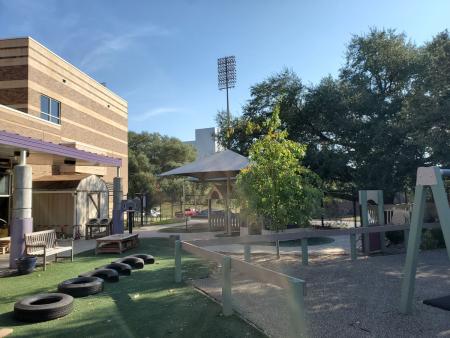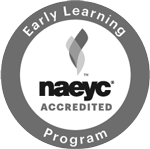Serving 12 children between the ages of two to three years, a curriculum of "learning centers" is implemented, allowing these older toddlers many opportunities to become autonomous learners as they work and play in this hands-on, multi-sensory classroom.
Children are cared for by a lead teacher, assistant teacher and our student teaching assistants.
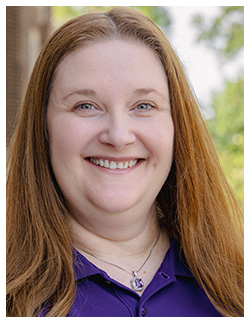
Ms. Dee, lead teacher
For 16 years, I worked as a special education paraprofessional in classrooms of various grade level. My experience with teaching toddlers includes two daycare centers and a Montessori school. I graduated Summa Cum Laude with a Bachelor of Arts in human services. I'm a certified nurse aide and currently earning a master's degree in organizational leadership. My husband and I have been married for more than 20 years and we have a teenage son. Our family also includes a German Shepherd and Flame Point Siamese.
As the Toddler II lead teacher, I look forward to continuing to be a lifetime learner and making wonderful memories with the children whose lives I touch.
Activities and development
Early Childhood Laboratory classrooms follow the Constructivist Theory approach. Our teachers develop outdoor lesson plans to correlate with weekly lesson plans that reinforce indoor learning and structure playtime to optimize learning. Using curriculum and assessments for guidance, design of the learning centers is based on the learning needs of each individual child.
In the Toddler II classroom, the development process of potty training begins when a child shows signs of readiness. Learning centers offer individual play and group activities such as stories and music. Emerging skills at this age include solving problems with words.
Toddlers are given opportunities to become autonomous learners as they work and play in a hands-on, multi-sensory classroom.
Daily schedule
| Time | Activity |
|---|---|
| 7:10 to 8:15 a.m. | Arrivals, limited learning centers |
| 8:15 to 8:30 a.m. | Restroom routine |
| 8:30 to 9:05 a.m. | Wash hands, breakfast |
| 9:05 to 9:30 a.m. | Story, music, group time |
| 9:30 to 10:15 a.m. | Learning centers, restroom routine |
| 10:15 to 11 a.m. | Outside play or motor room |
| 11 to 11:05 a.m. | Wash hands |
| 11:05 to 11:35 a.m. | Lunch |
| 11:35 a.m. to Noon | Restroom routine, transition to nap time |
| Noon to 2 p.m. | Naptime |
| 2 to 2:20 p.m. | Wake up, restroom routine |
| 2:20 to 2:45 p.m. | Snack |
| 2:45 to 3 p.m. | Story, activity, group time |
| 3 to 3:45 p.m. | Outside play, learning centers |
| 3:45 to 3:55 p.m. | Clean up |
| 3:55 to 4:15 p.m. | Restroom routine |
| 4:15 to 5 p.m. | Outside play or motor room |
| 5 to 5:10 p.m. | Clean up |
| 5:10 to 5:20 p.m. | Hallway for departure |
Stocking their cubby
Here's a quick checklist of items to keep in your child's classroom cubby:
- Diapers
- Lovey (small comfort item)
- Two to three sets of season-appropriate clothing
- Additional pairs of underwear once child begins potty training
We provide diaper wipes, naptime items (cot, pillow and blanket), toothbrush and water bottle.
Toys must stay at home.
New families:
Bring three to four photos of family members for your child's scrapbook collage page.
Playground
The toddler II playground is your child's first introduction to the "big kid swing"! Children perfect their skills cruising around the bicycle path, running around the climber, enjoying dramatic play and playing in the sandbox. The playground offers many sensory experiences and provides ample shade.
 Axe ’Em, Jacks!
Axe ’Em, Jacks!
